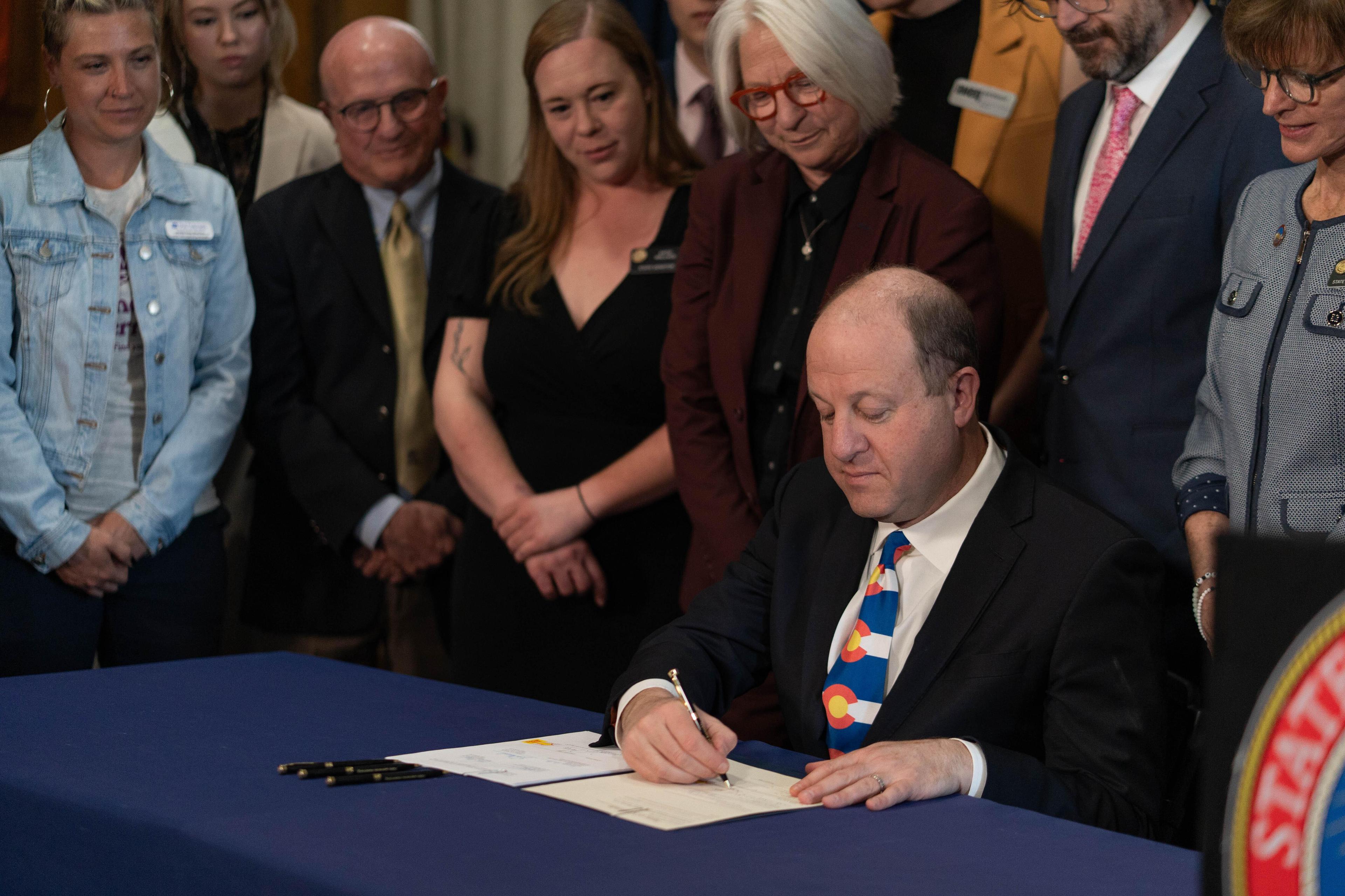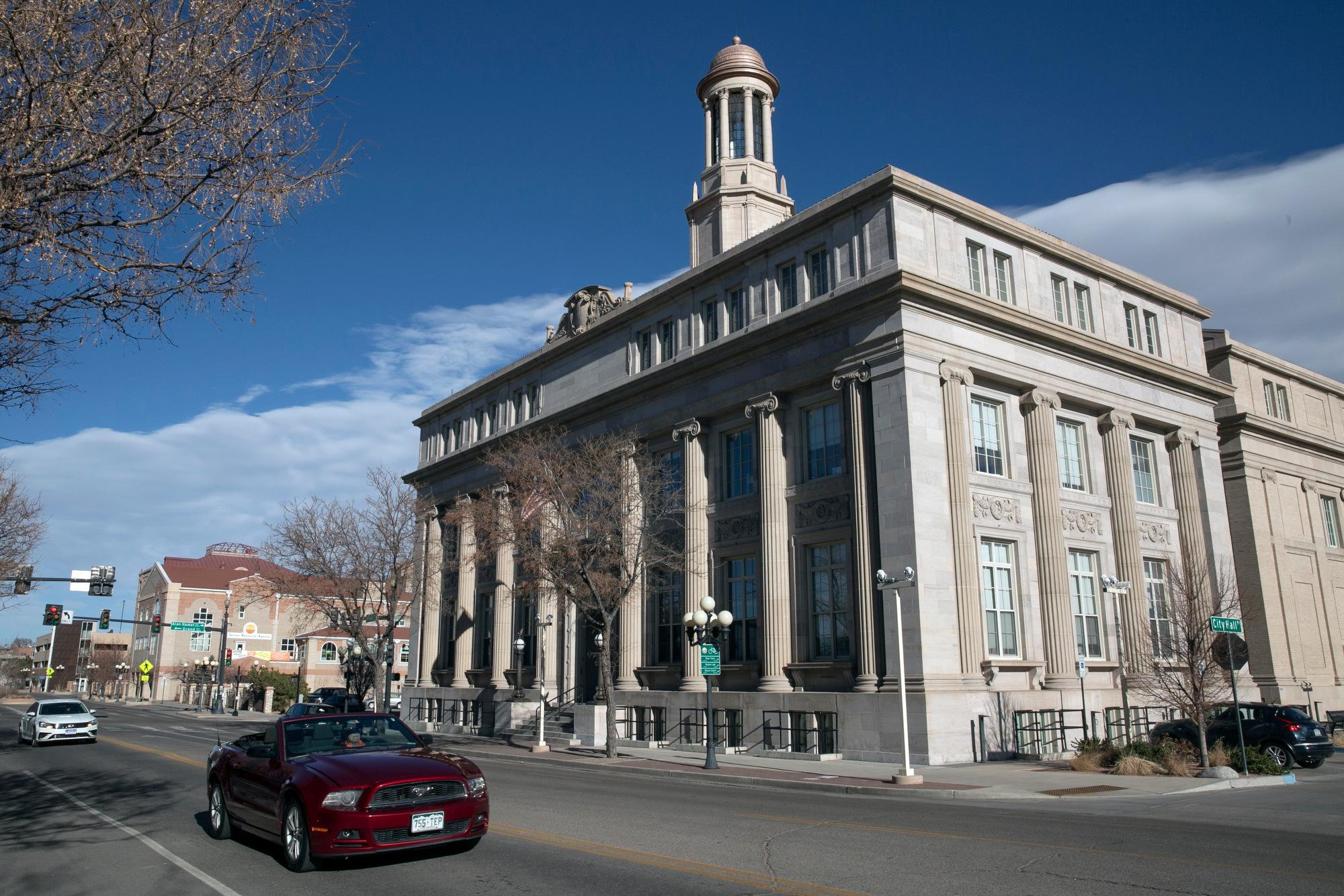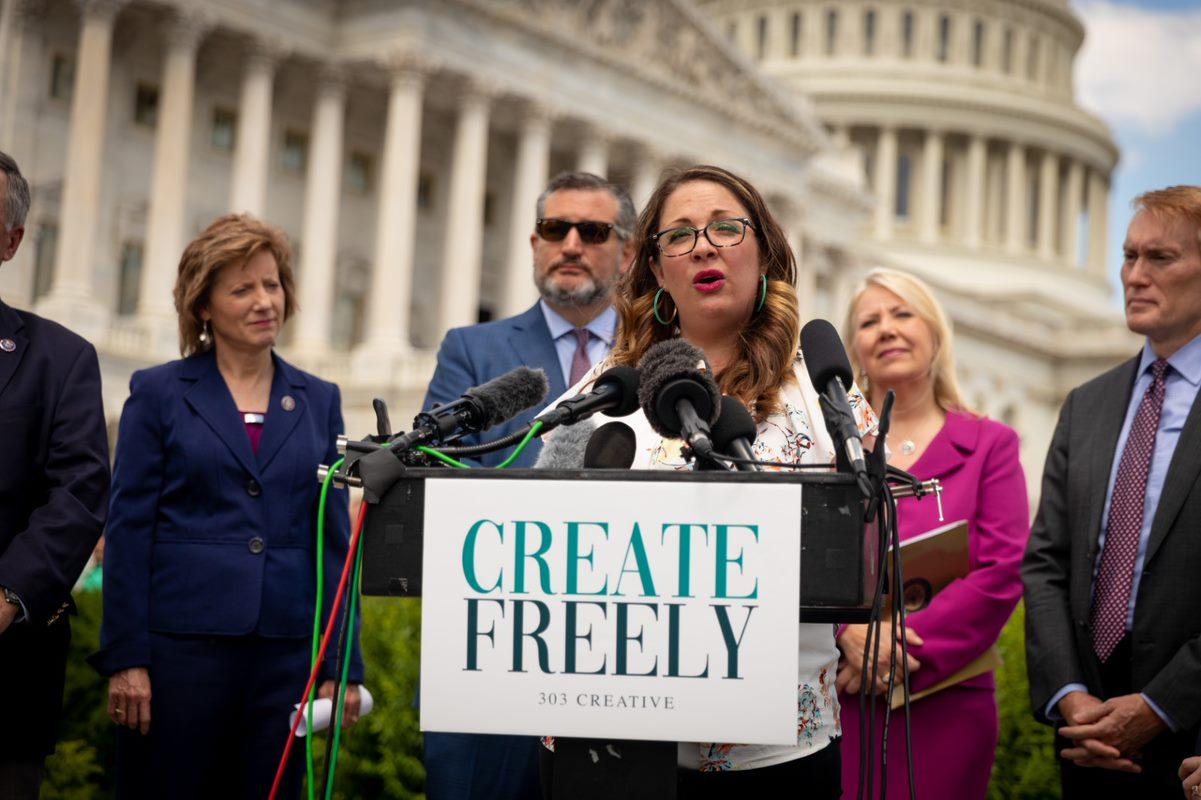
From Lorie Smith’s perspective, it’s not who the potential wedding-website customers are, it’s the message they’re asking her to create that is problematic.
Smith, the owner of 303 Creative, said she’s wanted to design wedding websites since she was a child, but because she is a Christian, she doesn’t feel comfortable designing for nuptial celebrations for same-sex couples.
She said she has clients who identify as LGTBQ, who she happily serves, but she draws a line at creating messages for them she doesn’t agree with.
“The artwork that I create is speech,” Smith said, in an interview. “It matters not to me how an individual identifies. What's important to me is what message is I'm being asked to create and design for. And those messages must be consistent with my convictions.”
From state Attorney General Phil Weiser’s perspective, Smith’s business shouldn’t be treated differently than anything else. Any business could call itself a creative enterprise. A coffee shop could say the lattes it steams are creative works of passion. A tire repair business owner could say replacing tires is a passionate devotion to making people safer on the road.
“You do get to define what your product is,” Weiser said. “Your product can be a book or a painting, but once you make your product you can’t discriminate against certain customers based on who they are. If you allow this loophole, thinking somehow this expressive interest exception is a minor exception, we are deeply concerned how this will run roughshod through the public accommodation requirements.”
This tension goes before the U.S. Supreme Court on Monday.
The high court will hear oral arguments on the most recent test to Colorado’s public accommodations law, weighing whether businesses claiming to be creative or artistic enterprises have the right to turn away customers based on what is requested of them.
Specifically, the court agreed to take up one question: Does applying a public accommodation law to compel an artist to speak or stay silent violate the free speech clause of the First Amendment?
They took up a similar case in 2017 that pitted a Lakewood bakery called Masterpiece Cakeshop against a gay couple in Denver who asked for a wedding cake and was denied. The court declined to definitively answer the question at hand, though, so many legal experts say the justices took up the 303 Creative case to come to some resolution once and for all.
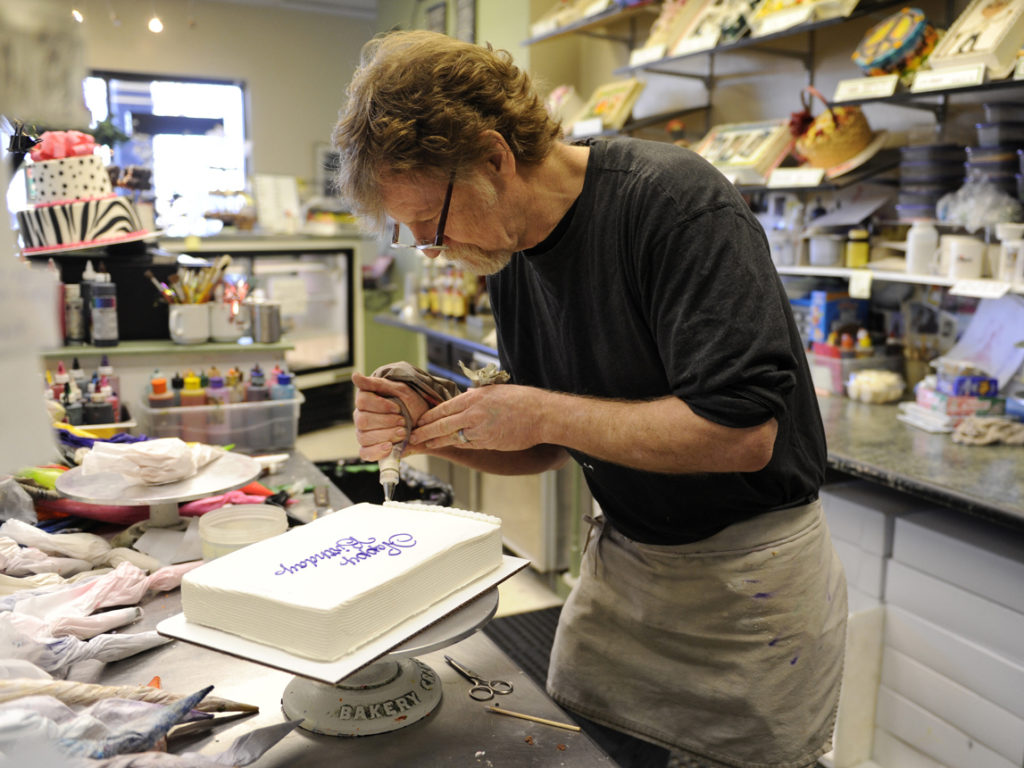
Weiser, whose team is arguing on behalf of the state of Colorado’s Civil Rights Commission, has maintained that this website designer case is fundamentally flawed because, as opposed to Masterpiece Cakeshop, there is no organic story behind it — Smith has not been asked by a same-sex couple to design a wedding site.
“We would appreciate the court waiting for another day when there is an actual person with actual facts before the court wades into what we believe is a critical issue that has far-reaching significance,” he said. “And if the court concludes that in this case, we will consider that dodging a bullet.”
Elizabeth Sepper is a constitutional law professor at the University of Texas at Austin School of Law and co-authored an amicus brief on behalf of the state on this case, which she called “a manufactured crisis” for Smith.
“A deep irony of this case because it should have been rejected because there is no live dispute,” Sepper said. “Because this business does not do wedding services, has never designed a website for a wedding and therefore doesn’t face a live circumstance where a same-sex couple has asked for a wedding website.”
Smith has said she has never created a wedding website, even though she wants to, because she doesn’t want to comply with Colorado’s anti-discrimination laws. She started the case by suing the state to challenge them.
“I spoke to my pastor, and my pastor recommended Alliance Defending Freedom,” Smith said. “So I reached out to ADF and they told me, yes, you do need to be concerned. So with much prayer and consideration and thought, I decided to take a stand to protect my rights.”
Colorado’s state laws forbid businesses to discriminate against customers based on race, color, religion, creed, national origin, ancestry, sex, pregnancy, age, sexual orientation, including transgender status, and physical or mental disability.
Weiser said the court has never weighed in on the nation’s various public accommodation laws that are rooted in civil rights era protections for African Americans. And he believes challenging these protections could be opening the entire country up to bigger discrimination problems.
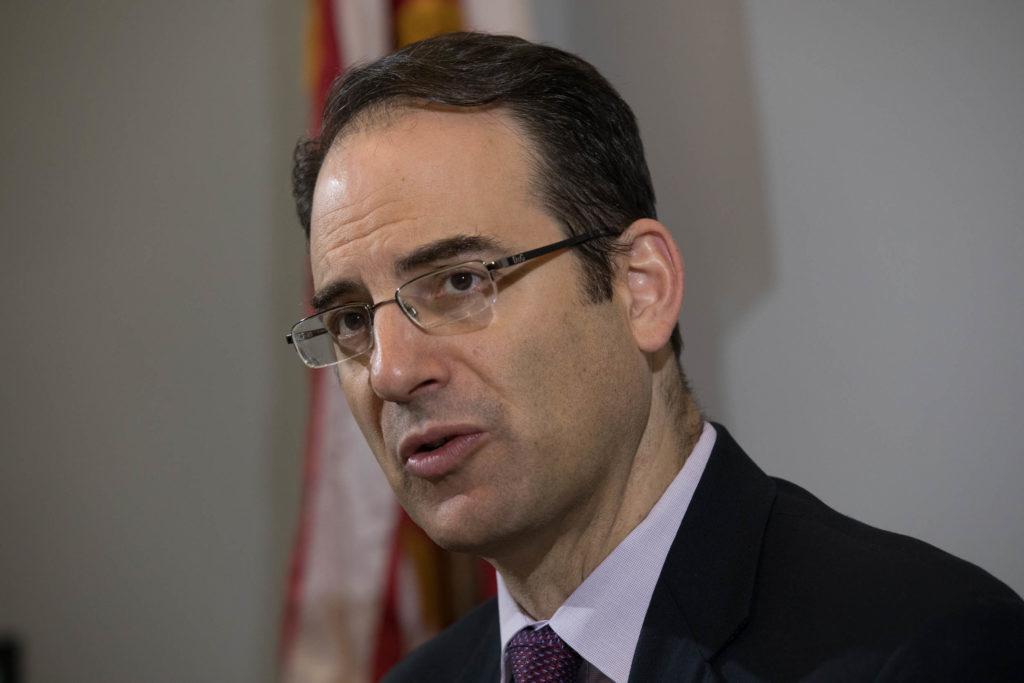
“This case would create a loophole that an individual could say, because I’m offering some product or service with an expressive element, I get to exclude, and you can fill in the blank here, it could be gays or lesbians, but it could be Jews or Mormons, or it could be African Americans,” he said. “That would be a revolution in our law that would be a radical step and it would undermine this core civil rights commitment that we’ve had for generations.”
In Sepper’s amicus brief, she looked at 303 Creative’s previous clients. She said she doubted Smith’s speech is represented in all of those clients.
“She’s created websites for attorneys who specialize in divorce and for marijuana and for bulldog breeding and for all sorts of DJs and blues bands that invite you to shake your money maker, and we use these examples to say in the normal course of commerce we don’t think the website designer is conveying any particular message,” Sepper said. “We think the owner of those websites are the ones conveying a message.”
Yet Dale Carpenter, a constitutional law professor at Southern Methodist University Dedman School of Law, said the courts have before allowed some levels of discrimination based on a group’s free speech beliefs.
In one 1990s case, a Boston organization banned a gay rights group from marching in its St. Patrick’s Day parade because their expressions violated the group’s religious beliefs, he said.
Carpenter, who has spent most of his professional life devoted to the cause of LGBTQ rights and the cause of same sex marriage, co-authored an amicus brief on behalf of Smith, saying website designers are definitely creating speech and that her work differs greatly from that of a tire salesman or a coffee merchant.
“Limousine drivers, hotel operators, and caterers should not have a free speech clause right to exempt themselves from anti-discrimination law in their professional activities,” they wrote.
Carpenter said that courts need to decide how to balance the rights of a designer like Smith with the overarching — and virtuous — rights of gay people to participate in the open market place free from discrimination.
“That's a clash that should not be resolved in a, let's say, totalistic way on one end of the spectrum or the other,” he said. “I think the details matter. The facts matter. The particular services matter, and the line drawing matters a lot.”

